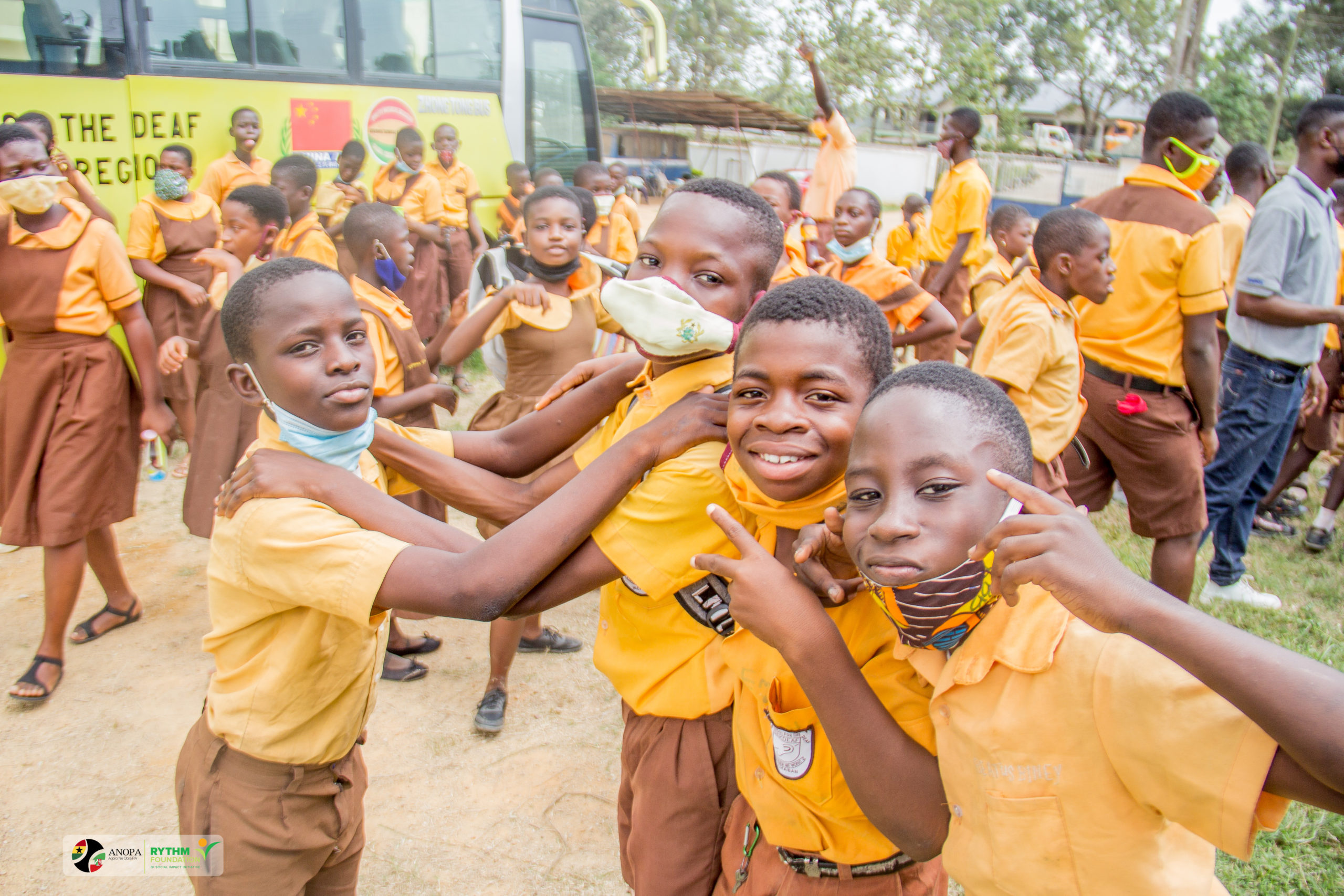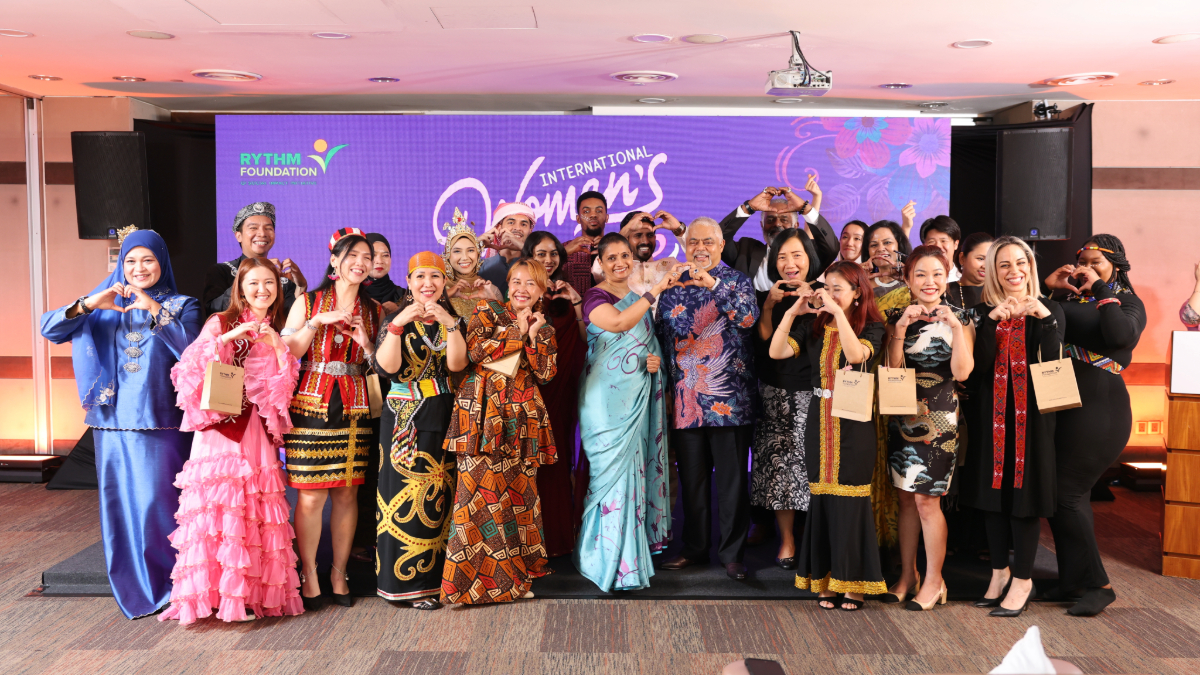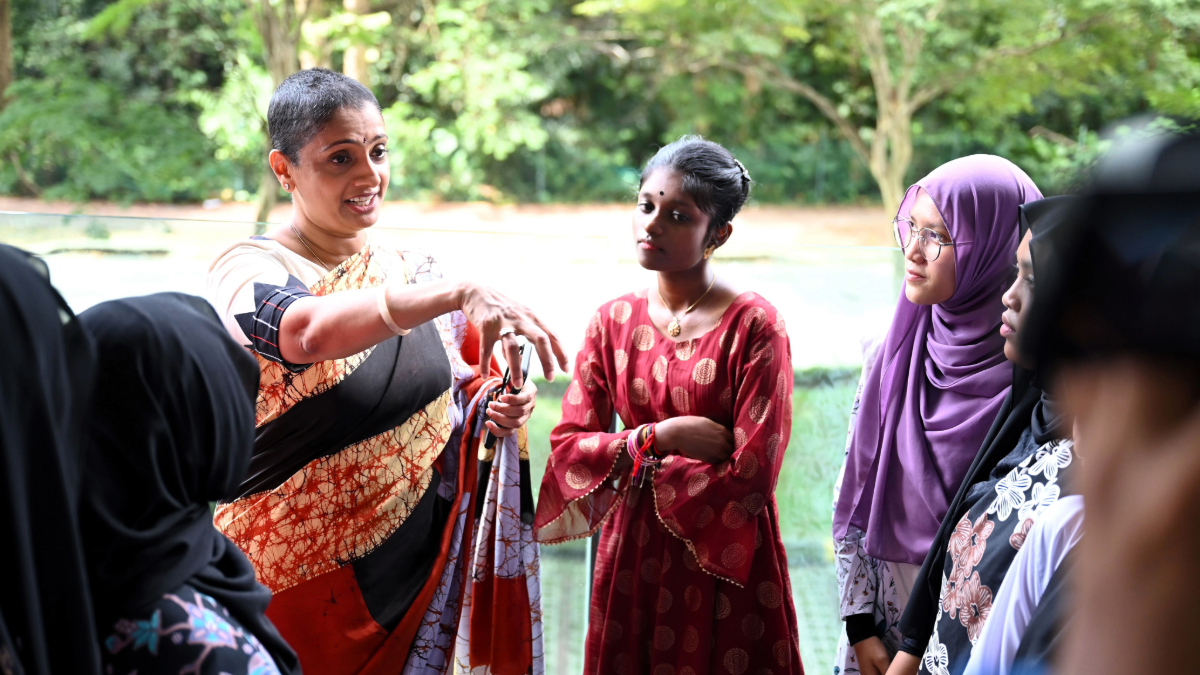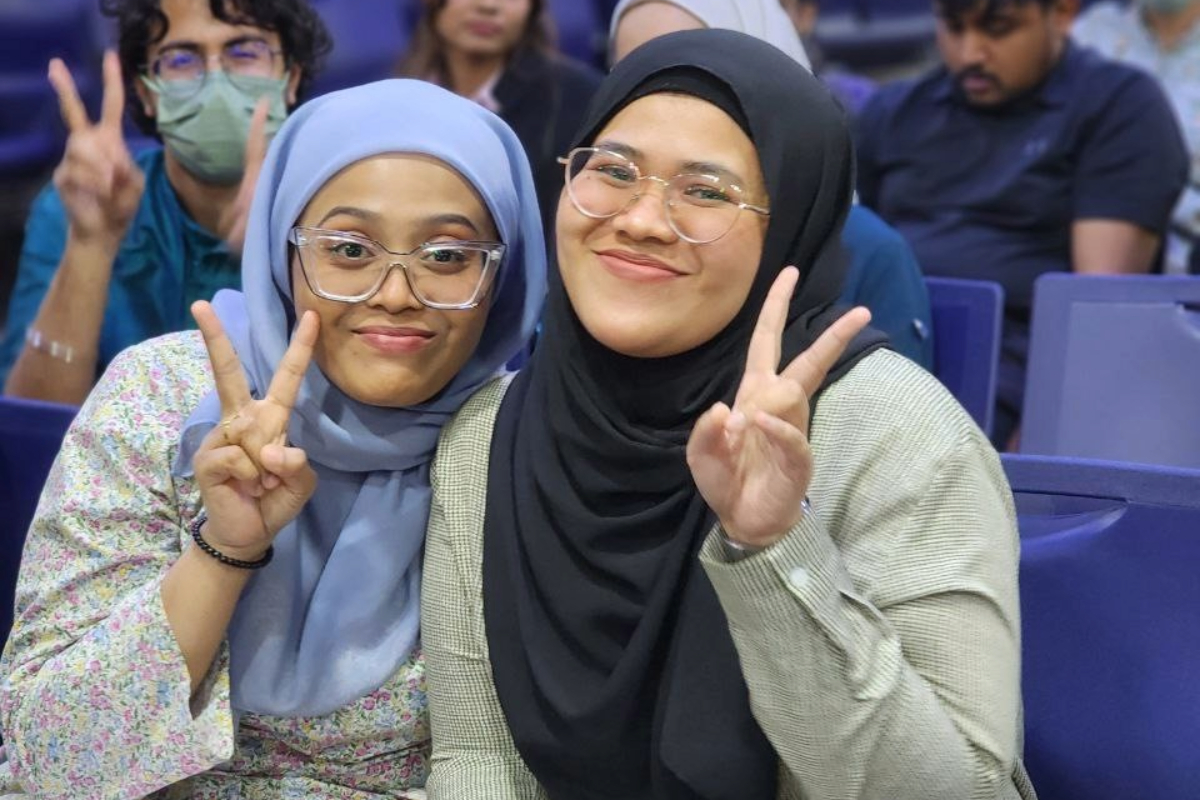The stigma against disability amongst communities in the Central Region of Ghana is so rampant that parents tend to hide their differently-abled children away from the rest of the world. Some children are even abandoned by their parents and as a result, many are deprived of their fundamental right to education.
“The social stigma and financial burden are sometimes too much for some parents to handle, especially when more than one child has a disability within the family, which unfortunately we see occurring quite often. In the last quarter, we went into a community and were surprised to find out that there were 40 visually- or hearing-impaired children who had been abandoned,” said Ernest Appiah, the executive director of ANOPA, a non-governmental organisation dedicated to improving the lives of children and adolescents in Cape Coast, Ghana.
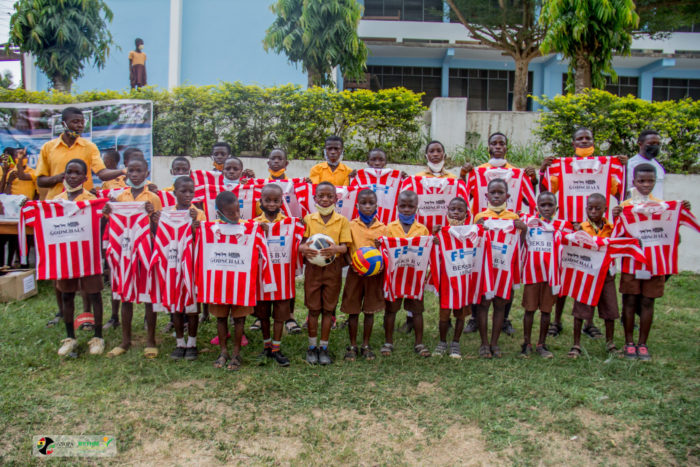
Established in 2010, ANOPA is short for Agoro Ne Obra Pa, which aptly translates into ‘play for a better life’. It is an international project that uses sporting activities as a means for the personal and social development of children within the surrounding communities. This idea is based on the pilot project that revealed how sports has the potential to reduce truancy amongst students who are excited about participating in activities such as swimming, football, basketball and more.
During the course of implementing the project, the organisation soon realised that during sporting events held in schools, the visually- and hearing-impaired children were excluded from participation. This was largely due to a lack of directives from district education authorities on promoting inclusive sports for differently-abled children. This, coupled with safety concerns and a lack of resources for engaging children with disabilities in sporting activities, were among the main obstacles for inclusivity. That is when ANOPA stepped in to provide trained staff and volunteers, as well as specialised sporting goods which enabled the differently-abled students to participate in sports.
“The children who were blind and deaf were so neglected that they were doing nothing on campus. When we launched the inclusive sports programme with RYTHM Foundation, they began to participate more and were actually staying in school. Attending school is a prerequisite for participating in our sports programme to encourage the integration of these children into society. Without this inclusive intervention programme, many of these children would have wasted away at home,” said Ernest.
With the support of RYTHM Foundation, ANOPA has managed to impact nearly 500 children from December 2020 to May 2021 through its inclusive sports education programme. The programme has extended beyond its first phase of using sports to promote education to also include the educational support model. This extension of the programme is currently providing the provisions and fees necessary for over 30 students to stay in school. Most of these students come from poverty-stricken families who do not have the financial means to fund their education which leads many of them to drop out.
The next crucial step in the organisation’s inclusion programme is the awareness and information module which sees Ernest and his team venturing into different communities to conduct seminars for the parents of differently-abled children. The team facilitates these seminars to increase awareness on the importance of education regardless of the children’s abilities and to encourage the practical enrolment of children with disabilities into specialised schools.
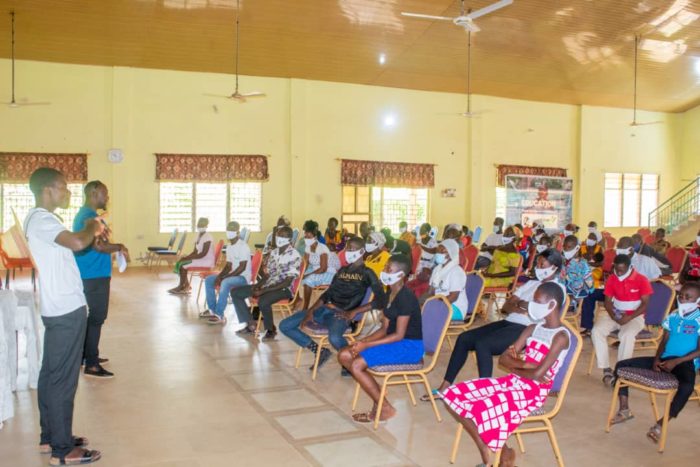
“We go into these communities and hold the awareness seminars for the parents and guardians to let them know that there are support systems available for their differently-abled children to socialise and integrate into society. There are some parents who are deep in denial and don’t want to believe that their children are deaf or blind. So, we start with emotional support for the parents, which we hope will trickle down to the children,” said Ernest.
Also Read: Philip Goes to School for The First Time Thanks to RYTHM Foundation
When the COVID-19 pandemic hit early last year and Ghana went into a lockdown, sporting activities came to a halt, but that didn’t stop the team at ANOPA from doing what they could to make a difference to the visually- and hearing-impaired children in their communities. After profiling and identifying the children most in need, ANOPA selected several children who were provided learning essentials to keep them motivated about their education despite the closure of schools.
“All we could do was visit some of these kids in the vicinity to donate these essentials to keep them encouraged. We would talk to them about the effects of the lockdown and the need to keep learning while they were at home because school would resume eventually. So, no matter how long the lockdown takes, they still must think about their education,” said Ernest.
When the lockdown ended, educational and sporting activities resumed under strict COVID-19 protocols. In addition to face masks and sanitisation procedures, ANOPA increased the frequency of activities that are now carried out in smaller groups to ensure the safety of the children, the teachers, and volunteers.
“RYTHM has been our biggest funder so far and we have successfully been implementing the inclusion intervention programme with their backing. Our hope is that we can continue working with RYTHM because there are still many differently-abled kids who are idle and stand to benefit from this programme,” said Ernest.
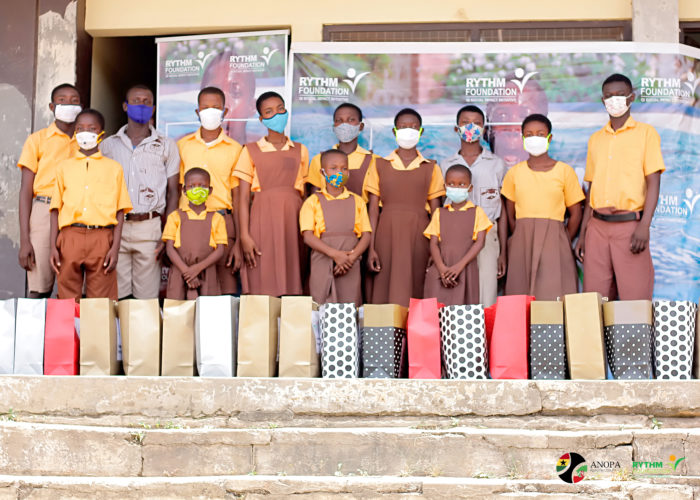
With a year left in the three-year partnership programme with RYTHM, ANOPA plans to expand the programme into future phases, which will include technical and vocational training to prepare the youths for the future. This phase will empower them with skills training in auto-mechanics, seamstressing, shoemaking and handicrafts, amongst others. In order to ensure a higher potential for their success, the vocational training will be demand-driven based on the interests of the youth.
ANOPA also plans to develop a manual by the end of the partnership to provide differently-abled communities with useful information that will help them as they assimilate into their communities. This manual will inform them of government policies regarding disability as well as the types of support available to visually- and hearing-impaired children and adults. By providing this knowledge ANOPA hopes to inspire some independence amongst differently-abled individuals and to ensure that these policies are actualised for a more inclusive society.
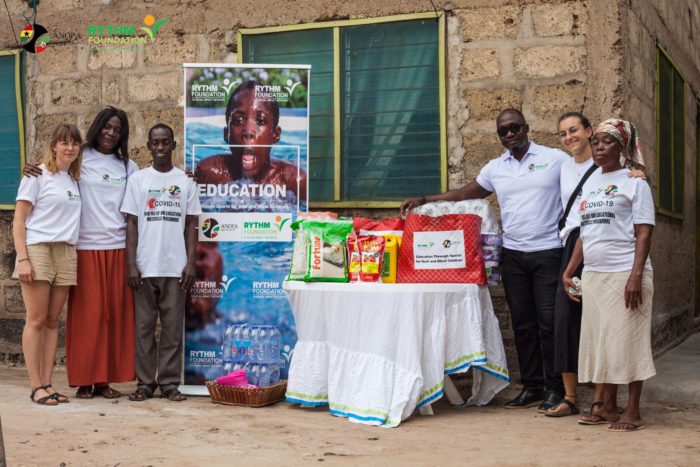
In highlighting the impact of ANOPA’s partnership with RYTHM, Ernest shared, “Initially, we had to seek out the differently-abled to enrol them in our programme and they would be hesitant. They have seen a lot of people come into these communities with promises to help and they never come back. But now the trend has changed, the deaf and blind groups as well as district associations are calling for us to come into their communities because they know that ANOPA and RYTHM can support them.”
Also Read: Back to School Thanks to RYTHM Foundation – ANOPA Project Partnership

